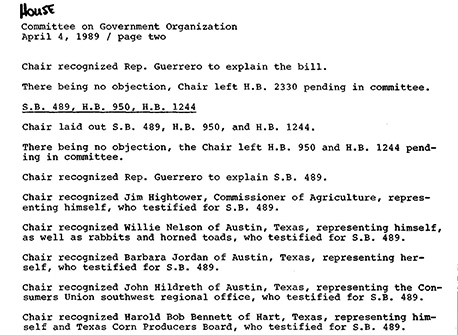Check out and delivery of New & Noteworthy titles is available to legislative staff in Capitol and District offices. To arrange check out and delivery of any of these items, you can submit an online request through the New & Noteworthy page on our website, contact the library at 512-463-1252, or use our PDF request form.
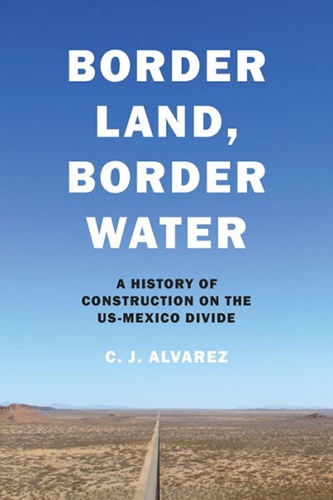
1. Border Land, Border Water: A History of Construction on the US-Mexico Divide
By C.J. Alvarez
Utilizes the history of construction on the United States-Mexico border, from the 1850s to the present, as a framework to examine the border region. Highlights the ecological diversity of the border and the variety of construction projects, illustrated with archival photos and maps. Considers the environmental, cultural, and political impact of construction and encourages better stewardship of the border.
University of Texas Press, 2019, 301 pages
363.6 AL86B 2019
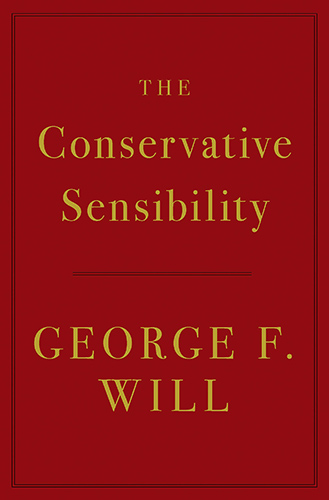
2. The Conservative Sensibility
By George F. Will
Examines the history of American conservatism, framed by the American founding principles of natural rights, limited government, religious freedom, and human virtue and dignity. Contrasts the American political philosophy of Founding Father James Madison with the progressivism of Woodrow Wilson.
Hachette Books, 2019, 600 pages
320.520973 W66C 2019
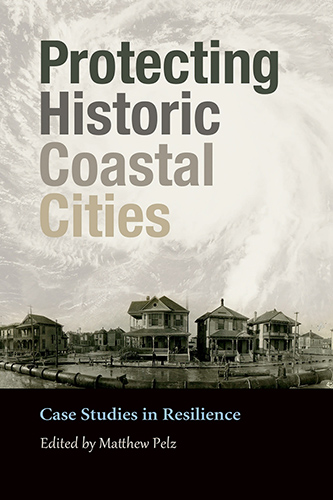
3. Protecting Historic Coastal Cities: Case Studies in Resilience
By Matthew Pelz, editor
Presents an overview of how historic communities in coastal environments are confronting unique challenges, now magnified by the frequency of severe weather events. Brings together experts with diverse backgrounds in historical preservation, public history, environmental science, engineering, and architecture. Explores issues related to coastal living and studies communities that are taking proactive approaches to challenging environments, such as resilient housing initiatives, public infrastructure changes, and pioneering advances in flood protection.
Texas A&M University Press, 2019, 132 pages
333.917 P369P 2019
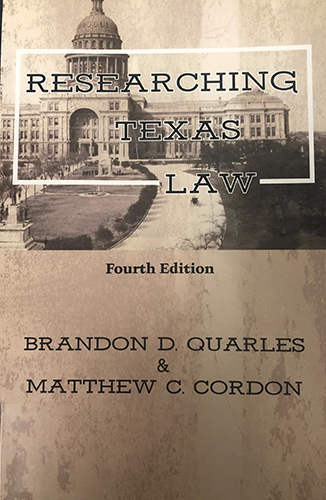
4. Researching Texas Law
By Brandon D. Quarles and Matthew C. Cordon
Instructs readers on how to conduct legal research. Covers case law, statutes, regulations, tracking bills, and compiling legislative histories. Provides research instruction for more practitioner-oriented items also, including: civil jury verdicts and settlements; briefs, records, and oral arguments; attorneys general opinions; and Texas practice materials.
William S. Hein & Co., Inc., 2019, 278 pages
340.09764 Q27R 2019
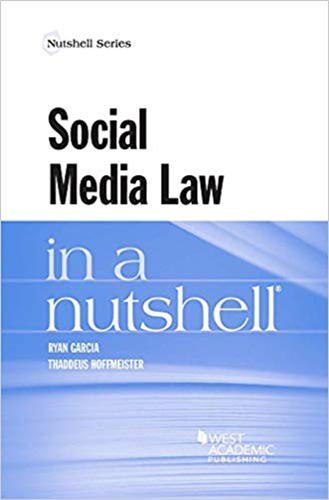
5. Social Media Law in a Nutshell
By Ryan Garcia and Thaddeus A. Hoffmeister
Examines the transformative impact social media is having on various legal areas including marketing, employment, freedom of speech, privacy, criminal law, and beyond. Provides tools for evaluating high-level social media legal risks so they can be avoided, and a framework for developing plans to address them if they occur.
West Academic Publishing, 2017, 421 pages
343.7309 G165S 2017
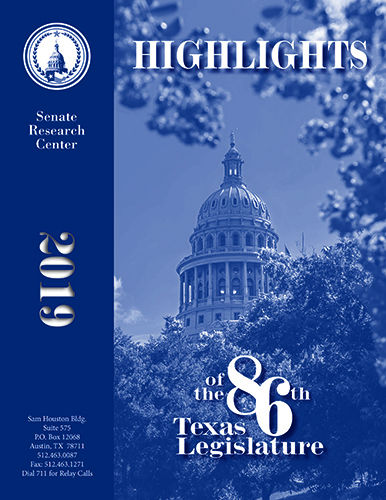
6. Highlights of the 86th Legislature, Vol. I & II
By Senate Research Center
Provides summaries of legislation passed during the 86th Texas Legislature, arranged by subject. Contains a comprehensive index that includes enrolled and vetoed bills. Presents information in a two-volume set.
Senate Research Center, 2019, 717 pages
Online at: https://senate.texas.gov/src-pub.php#highlights
L1803.1 SO44 86H
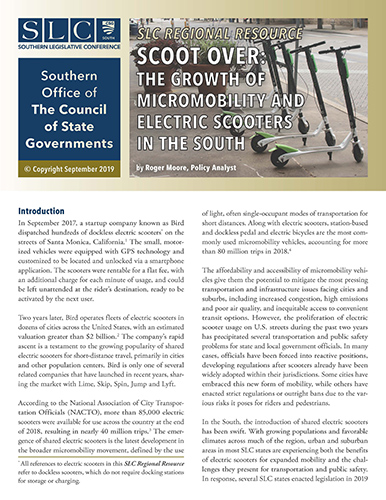
7. Scoot Over: The Growth of Micromobility and Electric Scooters in the South
By Roger Moore
Summarizes the growth of shared micromobility vehicles and their ability to augment public transportation. Discusses problems resulting from the introduction of dockless electric scooters, including regulatory ambiguity, challenges for public safety, and issues with infrastructure. Compares legislation from seven southern states related to the regulation of electric scooters and their operation.
Southern Legislative Conference, Council of State Governments, 2019, 11 pages
Online at: https://knowledgecenter.csg.org/kc/system/files/Micromobility-in-the-South.pdf
388.4 M786S 2019
This entry was posted on November 19, 2019 at 3:15 PM and has received 1124 views.
Print this entry.

